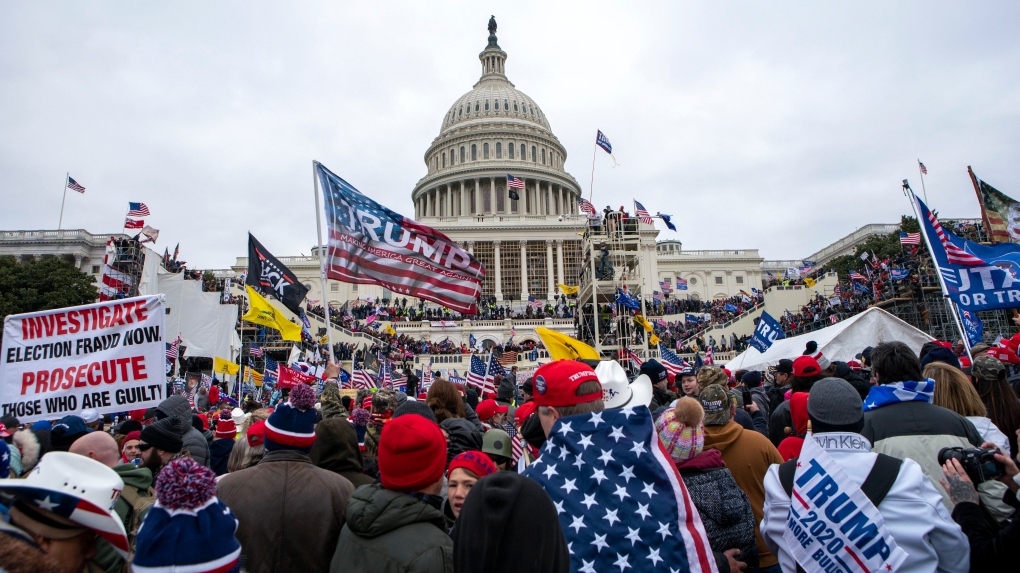Explaining how human brains are predisposed to believe conspiracy theories and political lies

A new book explores how human brains are predisposed to believe conspiracy theories and political lies.
“I studied the words of big liars throughout contemporary history, from Hitler to Trump and found common patterns,” University of Toronto linguist Marcel Danesi told CTVNews.ca. “As Cicero and other ancient rhetoricians knew, who controls the language controls thought.”
In his new book Politics, Lies and Conspiracy Theories: A Cognitive Linguistic Perspective, Danesi dissects the speech of prominent liars, dictators and hate groups and finds common threads, like the use of visually evocative and dehumanizing metaphors.
“Using such coded language reinforces the mind control that autocrats aim to exercise,” Danesi said. “Calling a group ‘dogs’ or ‘parasites,’ over and over, eventually becomes accepted as true.”
Danesi points to the Nazi regime, which described its targets as “pests” and “parasites” – terms that have been echoed more recently by white supremacists in the U.S. and elsewhere.
“Research shows that central metaphors ‘switch on’ existing circuits in the brain by linking together images and ideas, as for example linking a certain group to pests,” the semiotics and linguistic anthropology professor explained. “The more these circuits are activated the more hardwired they become.”
Danesi says our brains appear to be “predisposed” to these kind of thought formulas, which also allow us to accept conspiracy theories.
“When we are exposed to systemic lies, such as those of dictators and mind manipulators, repeated over and over, the brain seems to create a false memory code for them,” Danesi said. “Conspiracy theories resist counter-argumentation because they cannot be disproved—only believed or disbelieved.”
Another common thread between the “big liars” Danesi studied was the belief that a “deep state” or “cabal” secretly controls the world. Once someone is deeply entrenched in a conspiracy theory like this, Danesi notes they will often twist contradictory evidence to fit their own beliefs. A government denial, for example, could be seen as evidence of a cover-up.
“People will seek out information that confirms their own attitudes and views of the world, or else reinforces aspects of conditioned behavior, avoiding information that is likely to be in conflict with their worldview,” Danesi added. “For this reason, it is unlikely that people with strong convictions will ever change their mind about anything.”
With the internet-fuelled rise in disinformation and extremist vitriol, Danesi says it’s important to remember how this kind of rhetoric can result in instability and violence.
“The believability of a conspiracy theory is reinforced by what psychologists call apophenia, defined as the proclivity to perceive meaningful connections among unrelated things,” Danesi said. “History shows that violence against others is often related to the power of this effect.”


